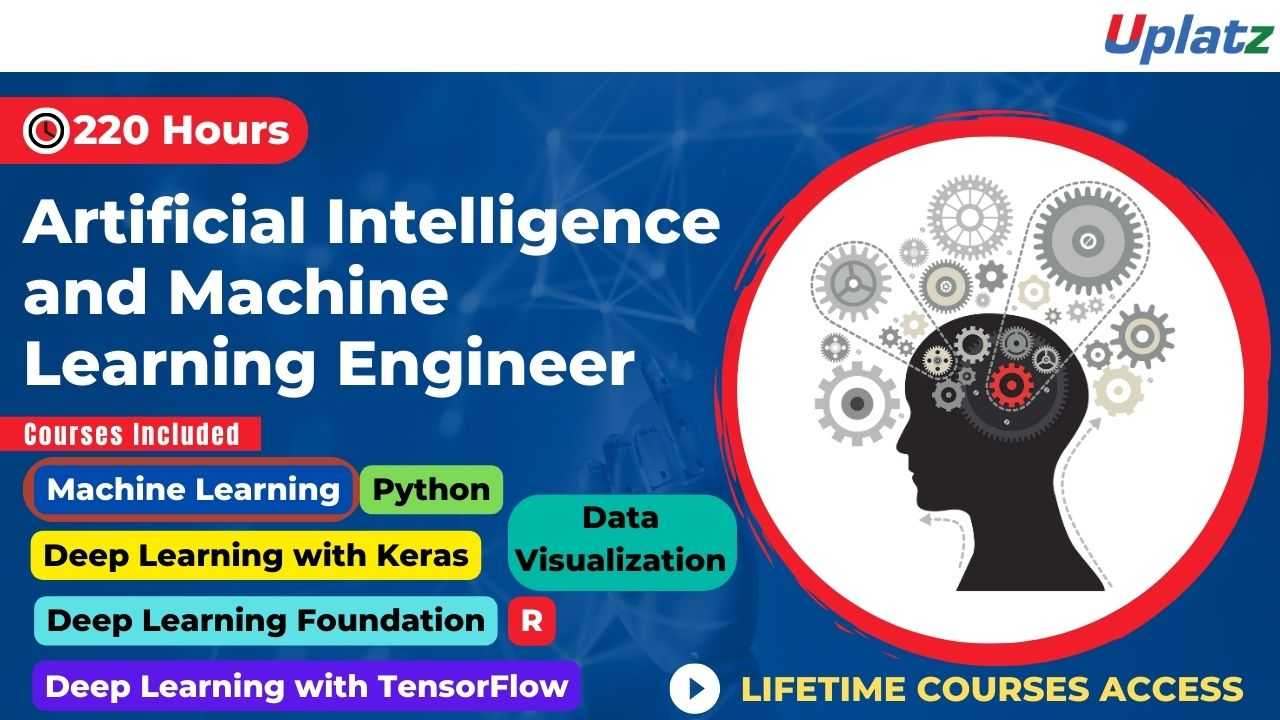AI Product Manager Career Path
: Build a successful AI Product Management career by mastering strategy, ML concepts, cross-functional skills, ethics & leadership. Price Match Guarantee
Full Lifetime Access
Access on any Device
Technical Support
Secure Checkout
Course Completion Certificate
Price Match Guarantee
Full Lifetime Access
Access on any Device
Technical Support
Secure Checkout
Course Completion Certificate
 93% Started a new career
BUY THIS COURSE (
93% Started a new career
BUY THIS COURSE (USD 45 USD 139 )-
 88% Got a pay increase and promotion
88% Got a pay increase and promotion
Students also bought -
-

- Career Path - AI/ML Research Scientist
- 200 Hours
- USD 45
- 368 Learners
-

- Career Path - Artificial Intelligence & Machine Learning Engineer
- 220 Hours
- USD 45
- 5212 Learners
-

- Artificial Intelligence, Data Science, and Machine Learning with Python
- 52 Hours
- USD 12
- 867 Learners

AI Product Manager – Self-Paced Online Course
The rise of artificial intelligence is reshaping industries—and behind every impactful AI product is a skilled product manager who bridges technology and business. This self-paced course is designed to help you become that bridge.
The AI Product Manager role is dynamic and interdisciplinary, combining product vision, user-centric design, technical understanding of AI systems, and ethical responsibility. This course walks you through the full lifecycle of AI product development—from ideation and model selection to evaluation, launch, and iteration—equipping you with a versatile skill set to thrive in AI-first and digitally transforming companies.
Through interactive lessons, real-world examples, and practical frameworks, you’ll learn how to manage cross-functional AI initiatives, prioritize ethical considerations, and build scalable, user-centric AI products.
This course is ideal for aspiring or current product managers, technical leads, business analysts, and entrepreneurs eager to lead AI-powered innovation.
Oops! No Video Subscriptions
By the end of this course, you will:
- Understand the evolving role of an AI Product Manager and how it differs from traditional product management.
- Learn AI fundamentals, including machine learning concepts, model lifecycle, and performance metrics.
- Master the product lifecycle for AI—from problem scoping to deployment and post-launch evaluation.
- Design AI products with a focus on usability, explainability, and user trust.
- Collaborate effectively with data scientists, engineers, and stakeholders.
- Understand and implement ethical and responsible AI practices.
- Gain tools to prioritize features, manage risks, and ensure data quality.
- Learn to evaluate vendor solutions and build vs. buy strategies.
- Prepare for AI PM interviews, build a strong resume, and position yourself for career advancement.
Course Syllabus
Module 1: Foundations of AI Product Management
- Defining the AI Product Manager role and career landscape
- Understanding the intersection of product, tech, and AI
- Comparing traditional PM and AI PM roles
Module 2: AI Fundamentals for Product Managers
- Basics of machine learning and AI concepts
- Types of AI models and their applications
- AI model lifecycle: training, testing, validation, deployment
Module 3: Building AI Products
- Scoping problems and framing AI use cases
- Data collection, labeling, and governance
- Feature selection and data pipelines
- Model evaluation metrics and trade-offs
Module 4: AI Product Lifecycle Management
- Roadmapping AI features and setting priorities
- Working with cross-functional AI teams
- Designing for explainability, fairness, and trust
- Handling model drift and post-launch iterations
Module 5: Ethical AI and Risk Management
- AI ethics: bias, privacy, and fairness
- Legal considerations (GDPR, data consent)
- Human-in-the-loop and fail-safe design
Module 6: Strategic Thinking and Market Fit
- Competitive analysis in AI landscapes
- Identifying user needs for AI solutions
- Monetization strategies for AI products
Module 7: AI Tooling & Vendor Management
- Evaluating AI platforms, APIs, and cloud services
- Build vs. buy decision frameworks
- Managing technical debt in AI systems
Module 8: Communication, Stakeholder Management, and Metrics
- Writing effective AI product specs
- Aligning engineering, business, and UX teams
- Defining and tracking product success metrics
Module 9: Career Development and Interview Prep
- Resume tips for AI Product Manager roles
- Sample interview questions and frameworks
- LinkedIn branding and networking in the AI space
- Portfolio-building for aspiring AI PMs
Course Wrap-Up
- Recap of tools, methods, and skills
- Final career advice and learning paths for further growth
Upon successful completion, you will receive a Course Completion Certificate from Uplatz, certifying your expertise in AI Product Management.
This credential enhances your professional portfolio and serves as a testament to your ability to manage AI-driven initiatives responsibly and strategically. Whether you are transitioning into AI product roles or aiming for leadership positions, this certification will boost your credibility and job readiness.
In addition to the certification, learners will be guided through industry-aligned AI PM interview preparation and career path planning. This includes resume-building tips, mock Q&A sessions, and insights into hiring expectations across various sectors.
AI Product Managers are in growing demand across technology companies, startups, and traditional industries undergoing AI transformation. With this course, you’ll gain a competitive advantage in an emerging field where product thinking meets cutting-edge AI technologies.
Career Opportunities Include:
- AI Product Manager
- Machine Learning Product Owner
- Product Manager – Computer Vision/NLP
- Director of AI Products
- Data Product Manager
- AI Strategy Consultant
- Ethical AI Lead
- Chief Product Officer (CPO) in AI-driven companies
Industries Hiring AI PMs:
- Tech and SaaS
- Healthcare and Biotech
- Fintech and Banking
- Automotive and IoT
- Retail and E-commerce
- Telecommunications
- Media, Marketing, and EdTech
Long-Term Career Paths:
- Specialize in Responsible AI, AI Ethics, or Data Product Leadership
- Advance to roles like Head of AI Products or VP Product
- Transition into AI consulting, innovation leadership, or venture building
- Leverage AI PM experience to launch AI-driven startups
This course helps you not just break into AI product roles but thrive in them—future-proofing your career for the next wave of tech innovation.
- What distinguishes AI product management from traditional product management?
AI product management requires understanding data, model behavior, and uncertainty—beyond just UI/UX and user stories. - How do you handle model drift in an AI product?
By monitoring model performance post-launch, retraining with fresh data, and integrating human review when necessary. - What is the role of a product manager during model training and validation?
To define success criteria, ensure relevant data is used, and align model outputs with user and business needs. - How would you prioritize features for an AI-powered product?
By balancing user value, technical feasibility, data availability, and ethical considerations. - What steps would you take to reduce bias in an AI product?
Use diverse training data, fairness audits, human oversight, and feedback loops to mitigate bias. - How do you communicate model limitations to non-technical stakeholders?
Through analogies, simplified metrics, visualizations, and clear disclaimers about uncertainty and reliability. - Explain how you would decide whether to build or buy an AI solution.
Consider cost, time, scalability, customization needs, team expertise, and long-term maintenance. - What is the significance of explainability in AI products?
It builds user trust, ensures transparency, and helps with compliance and debugging. - How do you define success metrics for an AI feature?
Use both technical metrics (e.g., accuracy, precision) and business metrics (e.g., user engagement, retention, conversion). - Describe a time when you worked with data scientists or engineers on an AI project.
Highlight collaboration, problem-solving, trade-off decisions, and how your product vision aligned the team.
- What is an AI Product Manager?
A professional who leads the development and strategy of AI-enabled products by aligning data, models, business goals, and user needs. - Is this course suitable for non-technical professionals?
Yes. No coding required. It teaches technical concepts through product-centric lenses, ideal for PMs, analysts, and strategists. - Will I need to know machine learning algorithms in detail?
Not deeply. The course focuses on conceptual understanding, application, and collaboration with technical teams. - Will I receive a certificate after completion?
Yes, you’ll get a recognized Certificate of Completion from Uplatz. - Does this course include hands-on projects?
Yes, with real-world case studies and frameworks for AI product thinking. - What tools will I learn about?
Common AI APIs, cloud ML platforms, MLOps tools, product roadmapping tools, and model evaluation frameworks. - How long will I have access to the course?
You get lifetime access with updates and resources. - What industries are looking for AI Product Managers?
Nearly all, especially tech, healthcare, finance, e-commerce, and automotive sectors. - Does the course include interview prep?
Yes. It includes dedicated modules for resume writing, mock interviews, and real-world Q&A. - What kind of support is provided?
You’ll receive expert guidance, doubt-clearing support, and career counseling through the course platform.









